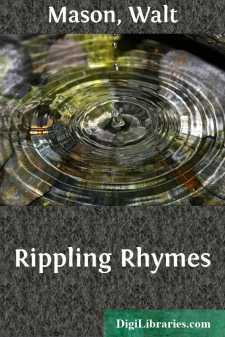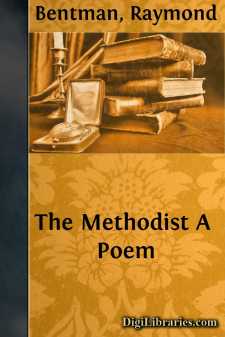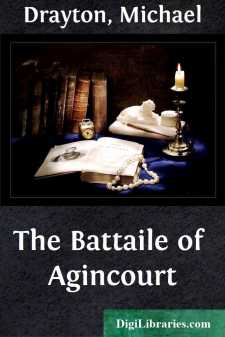Poetry Books
Sort by:
by:
John Louis Haney
INTRODUCTION To the modern reader, with an abundance of periodicals of all sorts and upon all subjects at hand, it seems hardly possible that this wealth of ephemeral literature was virtually developed within the past two centuries. It offers such a rational means for the dissemination of the latest scientific and literary news that the mind undeceived by facts would naturally place the origin of the...
more...
by:
Walt Mason
MORNING IN KANSAS There are lands beyond the ocean which are gray beneath their years, where a hundred generations learned to sow and reap and spin; where the sons of Shem and Japhet wet the furrow with their tears—and the noontide is departed, and the night is closing in. Long ago the shadows lengthened in the lands across the sea, and the dusk is now enshrouding regions nearer home, alas! There are...
more...
by:
Raymond Bentman
INTRODUCTION Evan Lloyd’s works consist chiefly of four satires written in 1766 and 1767, all of which are now little-known. What little notice he receives today results from his friendship with John Wilkes and David Garrick and from one satire, The Methodist, which is usually included in surveys of anti-Methodist literature. For the most part, his obscurity is deserved. In The Methodist, however, he...
more...
1. Origin of the Saga All the Aryan peoples have had their heroic age, the achievements of which form the basis of later saga. For the Germans this was the period of the Migrations, as it is called, in round numbers the two hundred years from 400 to 600, at the close of which we find them settled in those regions which they have, generally speaking, occupied ever since. During these two centuries...
more...
VOICES OF THE NIGHT <Greek poem here—Euripides.> PRELUDE. Pleasant it was, when woods were green, And winds were soft and low,To lie amid some sylvan scene.Where, the long drooping boughs between,Shadows dark and sunlight sheen Alternate come and go; Or where the denser grove receives No sunlight from above,But the dark foliage interweavesIn one unbroken roof of leaves,Underneath whose...
more...
by:
Michael Drayton
INTRODUCTION. All civilized nations possessing a history which they contemplate with pride endeavour to present that history in an epic form. In their initial stages of culture the vehicles of expression are ballads like the constituents of the Spanish Romanceros and chronicles like Joinville’s and Froissart’s. With literary refinement comes the distinct literary purpose, and the poet appears who...
more...
by:
Bliss Carman
RELIGION AND POETRY BY WASHINGTON GLADDEN. The time is not long past when the copulative in that title might have suggested to some minds an antithesis,—as acid and alkali, or heat and cold. That religion could have affiliation with anything so worldly as poetry would have seemed to some pious people a questionable proposition. There were the Psalms, in the Old Testament, to be sure; and the minister...
more...
by:
Nicholas Breton
There are few issues attended with greater uncertainty than the fate of a poet, and of the three represented herein it may be said that they survive but tardily in public interest. Such a state of things, in spite of all pleading, is quite beyond reason; hence the purport of this small Anthology is at once obvious. A group of poets graced with rarest charm and linked together by several and varied...
more...
PETER PATTER told them to me,All the little rimes,Whispered them among the bushesHalf a hundred times. Peter lives upon a mountainPretty near the sun,Knows the bears and birds and rabbitsNearly every one;Has a home among the alders,Bed of cedar bark,Walks alone beneath the pine treesEven when it’s dark. Squirrels tell him everythingThat happens in the trees,Cricket in the gander-grassSings of all he...
more...
by:
Henry Van Dyke
THE RED FLOWER June 1914 In the pleasant time of Pentecost, By the little river Kyll,I followed the angler's winding path Or waded the stream at will.And the friendly fertile German land Lay round me green and still. But all day long on the eastern bank Of the river cool and clear,Where the curving track of the double rails Was hardly seen though near,The endless trains of German...
more...











